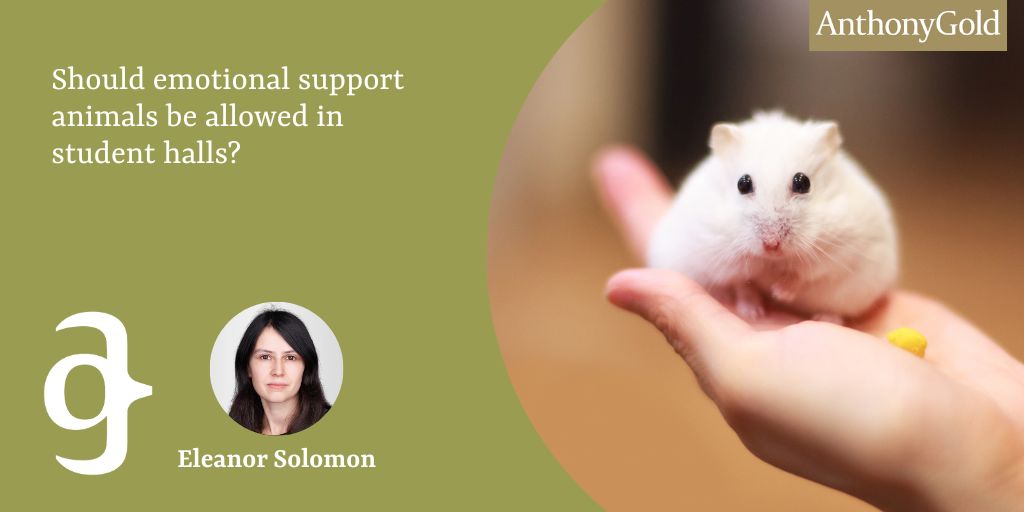Should emotional support animals be allowed in student halls?

Most student halls and other shared living spaces have a clause in the tenancy or license agreements that no pets are allowed. But are there situations when that clause is unlawful?
Are guide dogs allowed in student halls?
There must be accommodation available for people who require guide dogs or assistance dogs. It could be that specific flats are set aside for this purpose. There is no register of assistance dogs in the UK, but a guide dog or assistance dog will have received training from an official organisation.
Are emotional support animals allowed in student halls?
Unlike assistance dogs, emotional support animals will not have necessarily received any specific training to assist their owners. Their role is to provide comfort to an owner who may have a mental health condition, be neurodivergent or have another disability.
Do you have to allow emotional support animals in halls? Possibly. The Equality Act 2010 aims to balance the needs of disabled people against the possible detriment to the body responsible for meeting their needs, and the others around them. Emotional support animals should be considered on a case-by-case basis. The issues to be decided are:
- Is the student disabled within the meaning of the Equality Act 2010?
- Would the student suffer detriment if they were not allowed an emotional support animal, over and above the disappointment that anyone would feel on being separated from a pet?
- Will having the animal in halls cause problems for other residents or the hall managers? For example, it is highly unlikely that there would ever be a situation where the Equality Act 2010 required hall managers to allow a large noisy dog that was not toilet trained in student halls. That could cause distress to other students, other students may have dog allergies, and it would be a hygiene issue. There may also be an animal welfare issue in keeping a dog in a small room. The balancing act would not be in the disabled student’s favour.
However, if the disabled student wanted to keep an emotional support animal that would not cause problems to other residents or hall managers, such as a snail, fish or hamster, and that animal provided a real benefit to them in relation to their disability, it is hard to see that there would be a lawful justification to refuse this.
In summary, it is lawful to refuse animals in halls as a starting position, save that accommodation must be provided which is suitable for students and their guide dogs. Emotional support animals for disabled students must be considered on a case-by-case basis, considering the needs of the students and the needs of both the animal and the other residents.
Student halls should have a policy to follow and should keep records of any request to do something differently in relation to a disability.
* Disclaimer: The information on the Anthony Gold website is for general information only and reflects the position at the date of publication. It does not constitute legal advice and should not be treated as such. It is provided without any representations or warranties, express or implied.*
No comments